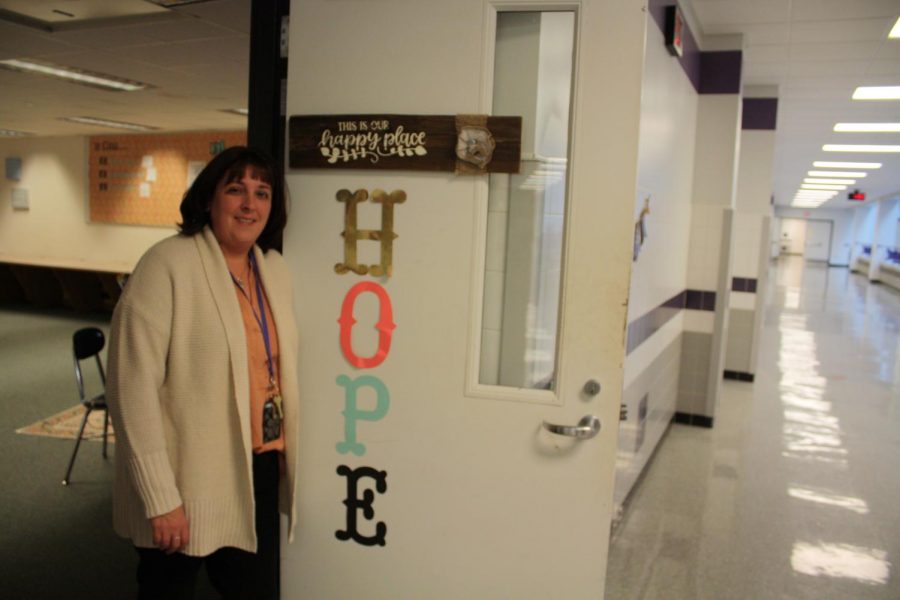Cassie Snyder, Magazine editor
February 4, 2020
The district’s new online learning program aims to provide a Baldwin-caliber education for both students at risk of expulsion as well as those who otherwise might enroll in a cyber charter school.
Saving the district $180,000 in its first semester of operation is just a bonus.
The Highlander Online Program for Education — or HOPE — was created by former Vice Principal Joe Sebestyen and current Vice Principal Jon Peebles, with assistance from teacher Amy Proie, who facilitates the program.
It is a two-fold program that provides an education platform both for online cyber students and for students who were at risk of expulsion, giving them another chance to improve and eventually return to school. HOPE is available for students in grades 6-12.
By offering a Baldwin cyber option, the district has cut its yearly outside cyber tuition costs in half. Similarly, having students who are at risk of expulsion in the HOPE program saves the district money on outside schooling costs.
HOPE partners with Waterfront Learning for its courses and curriculum. It includes options for more than 100 courses, including upper level Advanced Placement and honors courses. The grading is the same it would be if the student regularly attended Baldwin, and Baldwin course credits are seen on a transcript with no indication that they came from an online school.
Proie was hired for this position this summer. She facilitates the online program as well as the program for students at risk of expulsion, being available to help students with whatever questions they may have throughout the day.
She helps students not only with schoolwork but working on behavior and life choices. They work through different courses that deal with cyber behavior, drug abuse, loss, physical and emotional abuse, anxiety, and mental health. The Mindfulness Center is also available and encouraged for these students
“I facilitate the online classes and answer questions on schoolwork as well as help the students work on social and emotional learning,” Proie said. “We work on the problems significant to them now and fix them in ways that will set them on better paths for the future.”
The in-house program for students at risk of expulsion is taught in a first-floor classroom using the cyber curriculum. Students stay in the HOPE classroom all day.
Peebles said that not every student facing expulsion is offered the opportunity to participate in the HOPE program.
“We are very strategic with this program and which students we place there. They have to have a willingness to change in order for it to work,” Peebles said.
Peebles hopes that program becomes better known, and he plans to work on marketing the program better to get more students from outside cyber programs involved.




